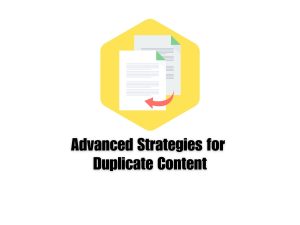
Case Studies: Successful Usage of Video Scripts
In the digital age, video content has become an integral part of online communication strategies for businesses and organizations across various industries. While videos are
In the vast universe of digital marketing and search engine optimization (SEO), internal linking is often overlooked in favor of its more prominent counterpart: backlinking. However, the power of well-strategized internal linking should not be underestimated. Internal linking can significantly boost the page authority within your site, enhancing your overall SEO performance. In this blog post, we’ll explore the role of internal links in SEO and how they can help boost page authority.
Internal links are hyperlinks that point to another page on the same website. They help guide users and search engine bots through your site, connecting relevant content and providing an organized structure.
Page authority is a metric, developed by Moz, to predict how well a specific page will rank on search engine result pages (SERPs). The score ranges from one to 100, where higher numbers correlate with a greater ability to rank.
While there are many factors that affect a page’s authority, internal linking plays a crucial role in three main ways:
1. Facilitate site navigation: Internal links guide users around your website, making it easier for them to find additional, relevant content. A positive user experience can improve site metrics such as bounce rate and time spent on site, which indirectly contributes to higher page authority.
2. Distribute link equity: When an external site links to your page, it passes on a certain amount of link equity or “link juice”. Well-executed internal linking helps distribute this link equity throughout your site, enhancing the authority of other pages.
3. Improve indexation: Internal linking helps search engine bots discover and index your content more efficiently. A well-indexed site is more likely to achieve higher page authority.
Now that you understand the role of internal links in increasing page authority, here are some actionable strategies to get the maximum benefit out of them:
1. Create a Lot of High-Quality Content: It’s simple math; the more quality content you have on your website, the more opportunities you have to create internal links.
2. Use Keyword-Rich Anchor Text: Anchor text is the clickable text in a hyperlink. Use anchor text that includes keywords relevant to the linked page. This gives both users and search engines a clue about the content of the linked page.
3. Link Deep: Instead of just linking to your site’s top-level pages (like the homepage or contact page), link to deeper content or blog posts that are more informative and have less chance of being discovered.
4. Make Links Relevant: Only link to other pages when it’s relevant to the content. Randomly linking to pages can confuse users and dilute the benefits of link equity.
5. Keep the User in Mind: While internal linking is vital for SEO, always keep the user experience at the core of your strategy. Overloading a page with too many links can deteriorate the user experience and lead to negative SEO impacts.
Effectively leveraging the power of internal linking is a nuanced but rewarding endeavor. When done properly, it can significantly boost the authority of your pages, improving their potential to rank on SERPs and enhancing the overall SEO health of your site. Whether you’re creating a new website or optimizing an existing one, don’t miss out on the opportunity to use internal linking as a powerful tool in your SEO arsenal.

In the digital age, video content has become an integral part of online communication strategies for businesses and organizations across various industries. While videos are

Duplicate content refers to identical or similar content that appears on multiple URLs within a website or across different websites. While duplicate content is common





“LeadsView did an excellent job with my project and will definitely recommend. Easy to work with, flexible and good quality of work. I am more than happy to recommend them."




















Copyright 2023 © LeadsView. All Rights Reserved
